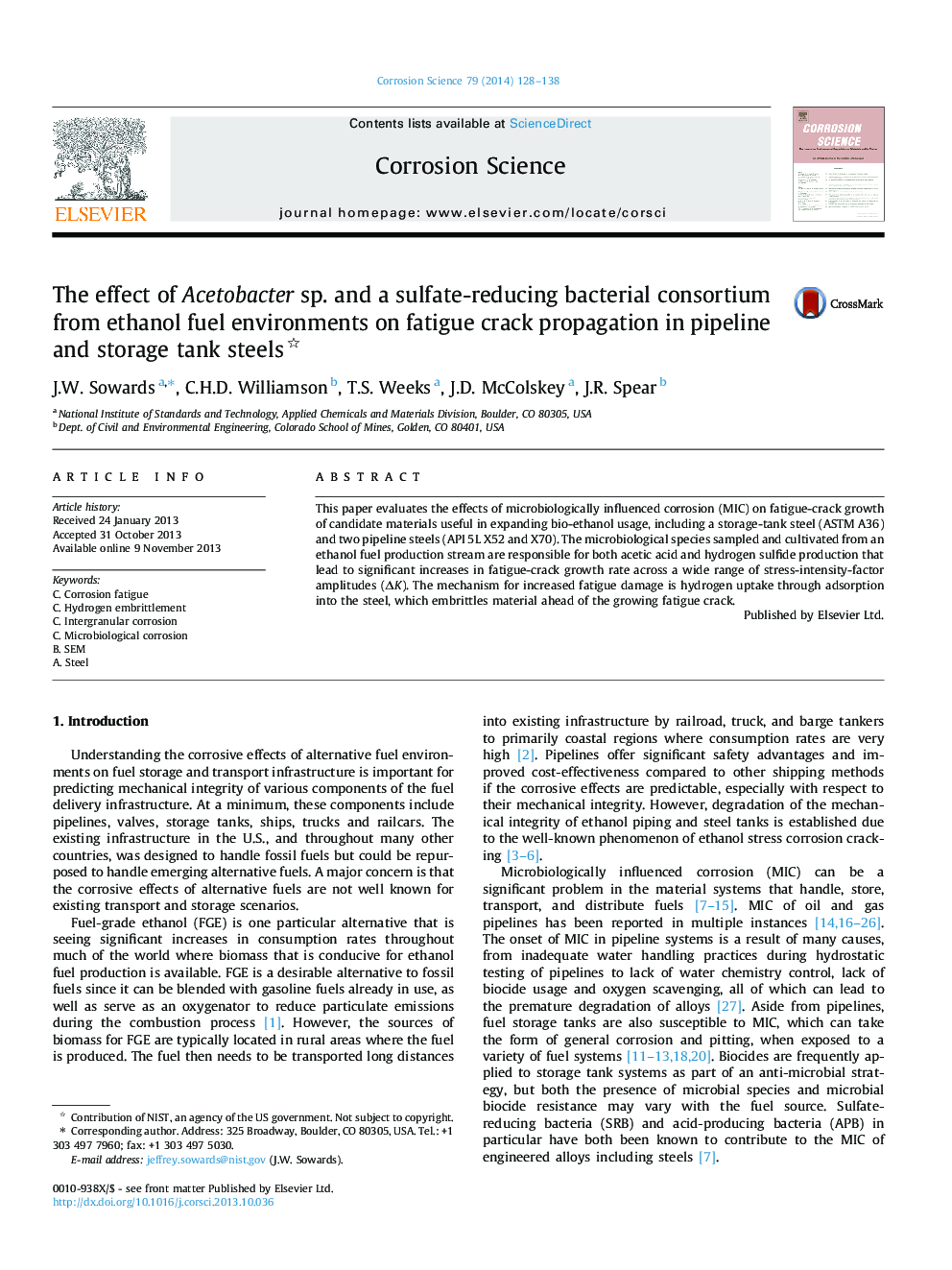| کد مقاله | کد نشریه | سال انتشار | مقاله انگلیسی | نسخه تمام متن |
|---|---|---|---|---|
| 1468996 | 1510016 | 2014 | 11 صفحه PDF | دانلود رایگان |

• Acid producing and sulfate reducing microbes were found in ethanol fuel facilities.
• Pipeline and tank steels were fatigued in biologically active ethanol solutions.
• Crack growth rates increased due to microbiologically influenced corrosion.
• Increased damage was related to metabolically produced hydrogen species.
• An industrial biocide appeared to control growth of acid producing bacteria.
This paper evaluates the effects of microbiologically influenced corrosion (MIC) on fatigue-crack growth of candidate materials useful in expanding bio-ethanol usage, including a storage-tank steel (ASTM A36) and two pipeline steels (API 5L X52 and X70). The microbiological species sampled and cultivated from an ethanol fuel production stream are responsible for both acetic acid and hydrogen sulfide production that lead to significant increases in fatigue-crack growth rate across a wide range of stress-intensity-factor amplitudes (ΔK). The mechanism for increased fatigue damage is hydrogen uptake through adsorption into the steel, which embrittles material ahead of the growing fatigue crack.
Journal: Corrosion Science - Volume 79, February 2014, Pages 128–138